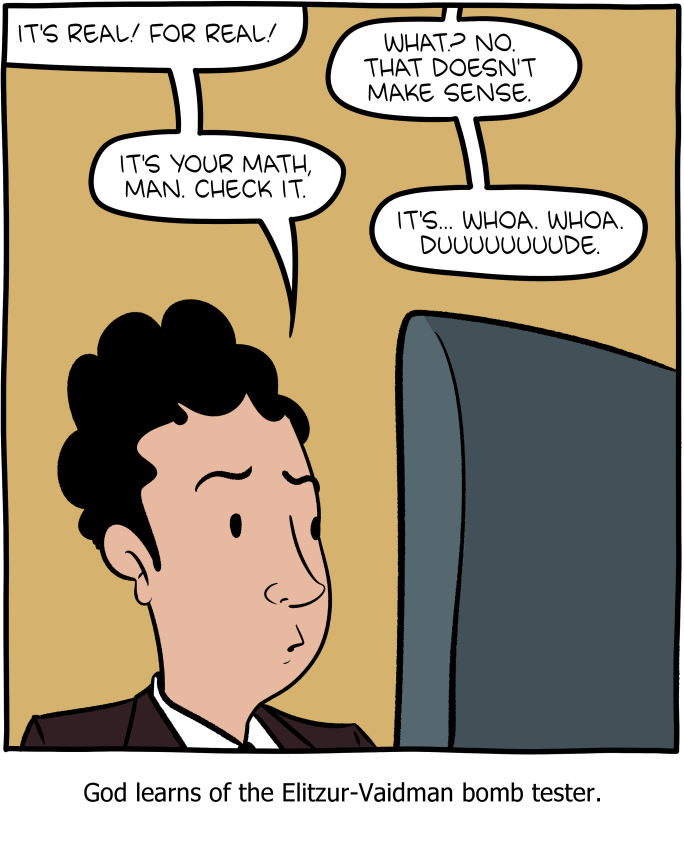No, not the way you set it up.
But...
The way you set this up, "the universe" will find a way to save your immortal character in a manner which leave doubt about if it's luck or if he's really immortal. Unless he dies, he cannot be sure that he's immortal, since he's not immortal.
He's immortal until proven otherwise.
Knowing that he won't know if he's immortal (or not) unless he dies or do something so dangerous that it doesn't leave place to doubt - which we want to avoid -, this character can guess that he cannot be certain, only reasonably certain.
Enter statistics.
Assuming only the protagonist is "maybe immortal", and that he is not willing to endanger himself recklessly, he should live his normal life, and every time something dangerous happens, write it down. After enough time, he'll have something like a sample he may use to do statistics. Then he'll be able to theorize if he might just be immortal, and what % of certainty he can attach to this hypothesis.
The thing is: this is not an exciting answer. The initial situation doesn't leave a lot of room th breath. Yet, if he's really immortal... he have way enough time to start and try this - and if he's not, he won't suicide himself while verifying.


